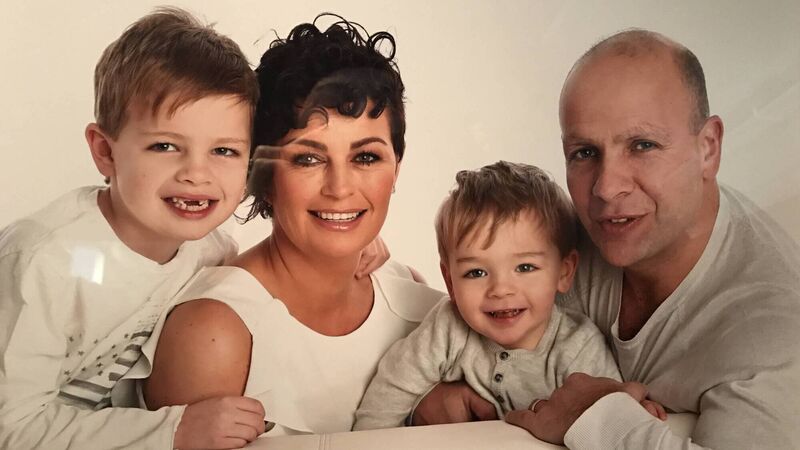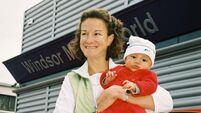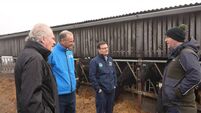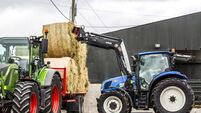'I was looking at my newborn son and visualising my funeral'


Symptoms of breast cancer may include any of the following:
A change in size or shape — it may be that one breast has become larger.
Changes in the nipple — in direction or shape, pulled in or flattened nipple.
Changes on or around the nipple — rash, flaky or crusted skin.
Changes in the skin — dimpling, puckering or redness.
‘Orange peel’ appearance of the skin caused by unusually enlarged pores.
Swelling in your armpit or around your collarbone.
A lump, any size, or thickening in your breast.
Constant pain in one part of your breast or armpit.
The Irish Cancer Society says: “If you do notice any change in your breasts, see your doctor as soon as possible. Remember that most breast changes are not cancer and are harmless. When your doctor examines your breasts she or he may be able to reassure you that there is nothing to worry about. If the change could be connected with your hormones, your doctor may ask you to come back at a different stage in your menstrual cycle.
“Alternatively, you may be sent to a breast clinic for a more detailed examination. Don’t worry that you may be making an unnecessary fuss and remember that nine out of ten breast lumps are harmless.”
Know what is normal for you, so that if any unusual changes occur, you will recognise it.
Get into the habit of looking at and feeling your breasts from time to time.
Look for changes by using a mirror so that you can see the breasts from different angles.
Feel for changes — an easy way of feeling your breast is with a soapy hand in the bath or shower. Some women prefer to feel for changes while lying down.
Know what is normal for you.
Know what changes to look for.
Look and feel your breasts.
Discuss any changes with your GP without delay.
Attend routine breast screening if you are aged between 50 and 64. You can register for BreastCheck by calling freephone 1800 45 45 55.
Early diagnosis is a key to surviving breast cancer.
More than 2600 new cases of breast cancer are diagnosed in Ireland each year.
Irish women have a 1 in 12 chance of developing breast cancer in their lifetime.
74% of Irish women with breast cancer discovered the lump themselves.
Only about five to ten per cent of breast cancers are believed to have a family link.
The risk of developing breast cancer increases with age. Approximately 80%of breast cancers occur in women over 50 years.
Around 22 men develop breast cancer in Ireland each year.
If you are diagnosed with breast cancer, ask your specialist doctor or breast care nurse, ask:
What is the type and extent of the breast cancer?
What’s my prognosis?
What are my treatment options and how soon can they start?
Should I continue taking HRT or the Pill?
Are there any changes I should make to make to my lifestyle (diet, exercise, smoking)?
Will I be able to carry on working?
Are my female relatives at a higher than average breast cancer risk?
Can I have tests to find out if the cancer has spread to other parts of my body?
Are there any clinical trials that I might be able to participate in?
What services does this hospital provide to help me through this?
Who can I telephone later if I’m worried about diagnosis and treatment?
For more see www.cancer.ie







 App?
App?


